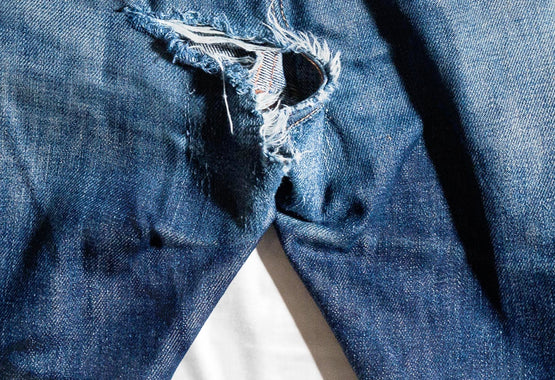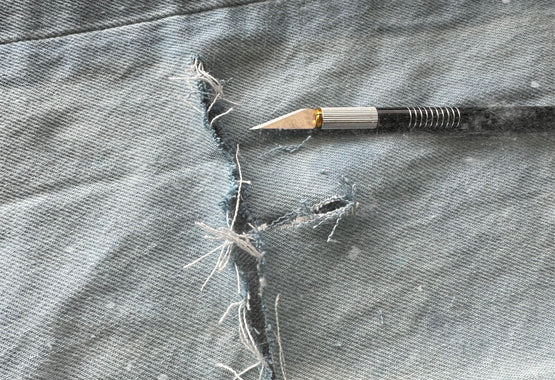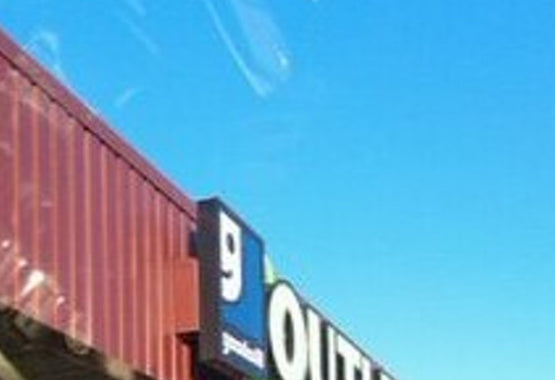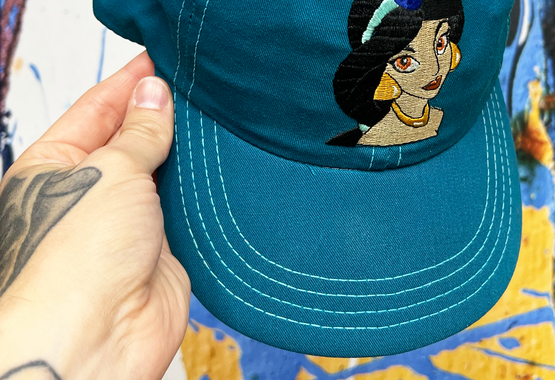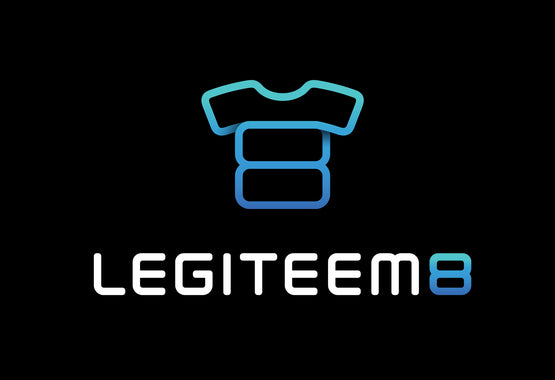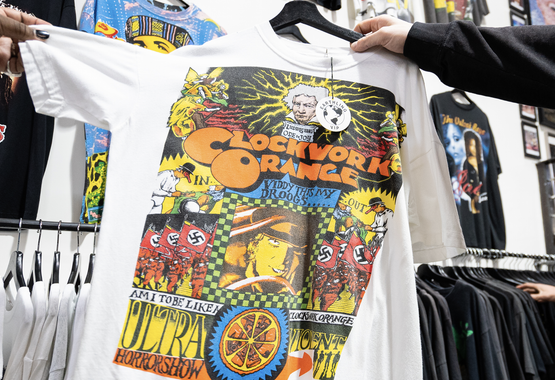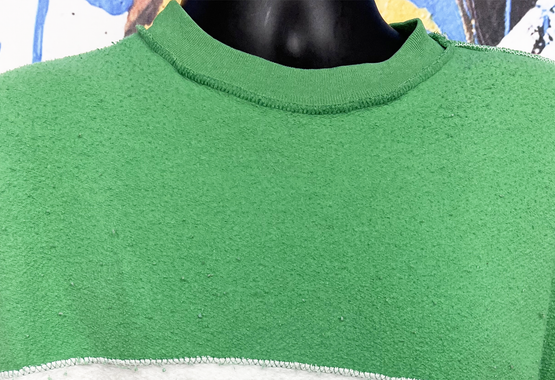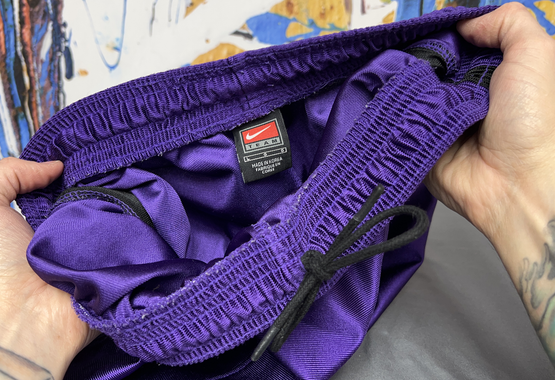There's A Free, Easy Way To Authenticate Vintage T-shirts Online


Considering the fake apparel and counterfeit goods market is worth something like $450 billion annually, it’s no wonder why much of the talk amongst vintage heads relates to authenticity. Because if you’re planning on dropping several hundred dollars on something collectible, chances are you’d like to know if it’s actually worth what you’re paying for it, or if it’s just a cheap overseas knock-off valued at zilch. Zero. Nada.
For sneakers, this hasn’t been much of an issue to legit check a pair online pretty easily. There are plenty of apps and organizations out there fighting against the fakes (Nike even went in on StockX recently with a hefty lawsuit for selling them). Vintage t-shirts are an entirely different, unregulated market though, and until now have had little help from experts on deciphering what’s what on the streets.
A few weeks back, however, that all changed when a new app launched called Legiteem8. It’s an online resource that deals exclusively with t-shirt authentication by well known experts. It also has a main hangout area with crowdsourced info to legitimize any uploaded tee … for free. What’s best, is it’s founded in part by Defunkd legend James Applegath — the site that brought it all to the web, at least in terms of online archiving and bringing legitimacy to collecting smelly old shirts.
@thriftcon Legiteem8 is a new app that harnesses the expertise of everyone to authenticate vintage tees #vintage #vintageclothes #reseller #thrift #thrifting #thriftflip #thrifthaul #thriftcon #gratefuldead #legiteem8 #apps ♬ Se Acabo (feat. Method Man) (Remix) - The Beatnuts
"Legiteem8 educates and evolves the process, so anyone can feel confident about the authenticity and worth of their items while also having a hub to identify forgeries," said Applegath in a recent press release. "There's strength in numbers and our community will help call out vintage t-shirt counterfeiters and give bootlegs the boot."
In a forthcoming Tee Time podcast about the app, we spoke with Jimmy J and co-founder Amir Vejdani (of Citees) about what’s going on and how this thing can serve the reseller space. They said the Legiteem8 community has already grown to about 1,000 active users who’ve authenticated hundreds of tees already. The users range anywhere from lowkey thrifters to full-on collecting warlords.
The way it works is pretty simple, too. Think of Wikipedia, but for shirts. All users start out by having a fair say in what they think is legit and what isn’t. The more someone contributes by entering in correct data, the more their profile is looked at as a trusted source. Beyond that, Legiteem8’s paid tiers bring to the table something never before seen in the vintage community: a team of actual, bonafide experts.
So far, more than half a dozen certified specialists are signed on to help authenticate via the paid one-time tiers (with many more to come). Experts like Kevin Scott, who basically wrote the book on rap tees. Stephen Voland, super collector of 1960s-‘80s rock tees (who also wrote a book about them). Jack Willis of the crazy popular Instagram page @niketeesaretheshit. Bethany Nixon of Reware Vintage, Heather McTammany of Skippy Haha Vintage … the list goes on.
In total, the men and women taking their time to carefully look at these submissions have amassed over a hundred years of experience collectively and have also contributed personally in a substantial way to the growing history of textiles.

Unlike others in the space, Legiteem8 doesn’t even ask for financials to log in and start poking around. The risk of signing on is mild compared to any other app on the market. It’s like, even if you have a few shirts you’re not exactly sure about, it’s free tier allows you to get several eyes on it that decide if it’s legit or not. Then you can bail. It’s pretty simple.
If you want that second opinion though, it’s an endeavor that won’t break the bank. Even the highest price tier — that comes with a personally minted NFT — won’t set you back by much. This is one of the options I chose when authenticating three shirts I have in the closet, including an early-‘90s Ice-T tee I got a few years ago. (Say that 10 times fast.)
My thinking going into this was: if I could somehow get an expert to appraise the thing, legitimize it with the NFT, I now have proof of the item’s worth in case something happens to my house and/or collection — something you automatically start thinking about when you turn 40.
I now own an Ice-T tee NFT.
Yet compared to the overall value of the shirt, the prices are negligible. And while it may add up over time as I do the same to all shirts in my collection, it’s worth the investment just having documented asset value moving forward. Without it, insurance companies will most definitely try to play their thefty little games.
Outside of that though, authenticating can be used as a tool for resellers to get what it’s worth. Too often, lowballers troll around on reselling apps looking for a snipe. It’s more of an annoyance than anything, really, but with a legitimate authentication and retail assessment, you at least have proof that you know the asking price is fair. Or use the archive as a resource to look something up you may have in stock you're unsure of. It’s an invaluable tool if you’re sitting on a few thousand dollars of things you need sold at fair market value.
It’ll hopefully keep those idiots on eBay in check too. You’re asking $5k for what now? Kevin Scott says no!
Overall, this is absolutely one of the coolest apps we’ve seen hit the vintage space. It’s easy, credible and doesn’t look like a 5th grader threw it together on MS Paint or whatever equivalent Macintosh had back in the day. And for the low, low starting out price of “Free99” you can’t really beat the experience.

